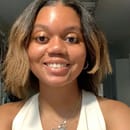In our nation at this very moment, exists a crisis unbeknownst to the public eye. Deemed by experts as a form of modern day slavery, human trafficking in the US is now larger and more dangerous than ever before. For women, being forced into human trafficking is a fear that is susceptible to all; however, the abduction and assault of black women occurs at significantly larger rates than white women. Black women have become the targets of predators and assailants, yet are silenced into oblivion by the media more concerned about celebrity gossip than the distressing rates of kidnappings of black women and girls. Taken advantage of and sold off for money, young black women thrown into human trafficking have lost their sense of security and seen the worst in life. As opposed to the outrage expressed over petty crimes in comparison, few are aware of the crisis of sex trafficking for black women. Due to the lack of knowledge of the dangers of trafficking presents for black women, it is our duty as black women, and humans in general at that, to advocate for the safe recovery and rescue of our black girls.
Big cities like Atlanta and Washington DC have already seen surges in human trafficking in the past 10-15 years and it’s only increasing; however, it is possible to combat this serious and unfortunate crime. The main way to reduce the human trafficking of black women is to simply open up the conversation. By just speaking on how to end and prevent trafficking, we allow human trafficking to become less taboo and create a solid form of resistance to these crimes which happen on a daily basis.
Secondly, we have to construct the platform where black women are not viewed as promiscuous in these cases. In order to put an end to the abuse of black women forced into human trafficking, we have to end blaming the women saying that it was because of what they were wearing or that they were for such situation to occur to them. No human being wants to be held captive and taken advantage by anyone, let alone exploited for money.
Being college students, it’s important that we take the necessary precautions to protect and take care of one another. We all know the advice given to us all the time, be careful, stay with a group, leave with the people you came with; however, one of the most important ways of protecting yourself from the danger is simply trusting your gut. If your intuition tells you that the situation or place your in isn’t right, leave as soon as possible. It’s better to be safe than sorry.
Human trafficking has been growing in the US at alarming rates and now is the time that we not only watch for ourselves but also those who have been taken advantage of already. Black women and girls are more than deserving of rescue from the inhumane and despicable act of human trafficking, yet media attention is not often given to these young women. As sisters to those who have been taken captive, it is our moral duty to advocate for their safety and dignity when it can be impossible for them to speak up for themselves.


